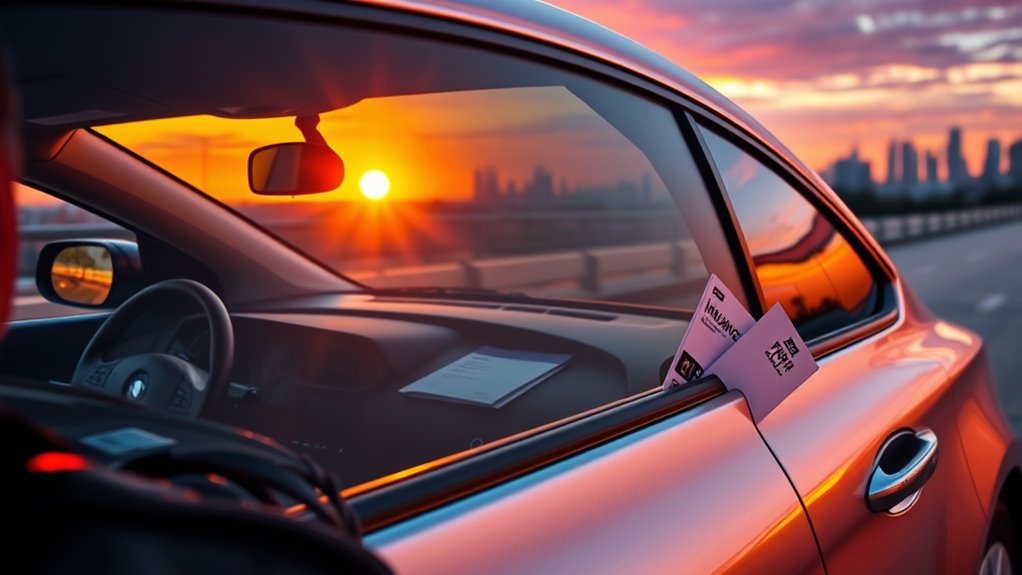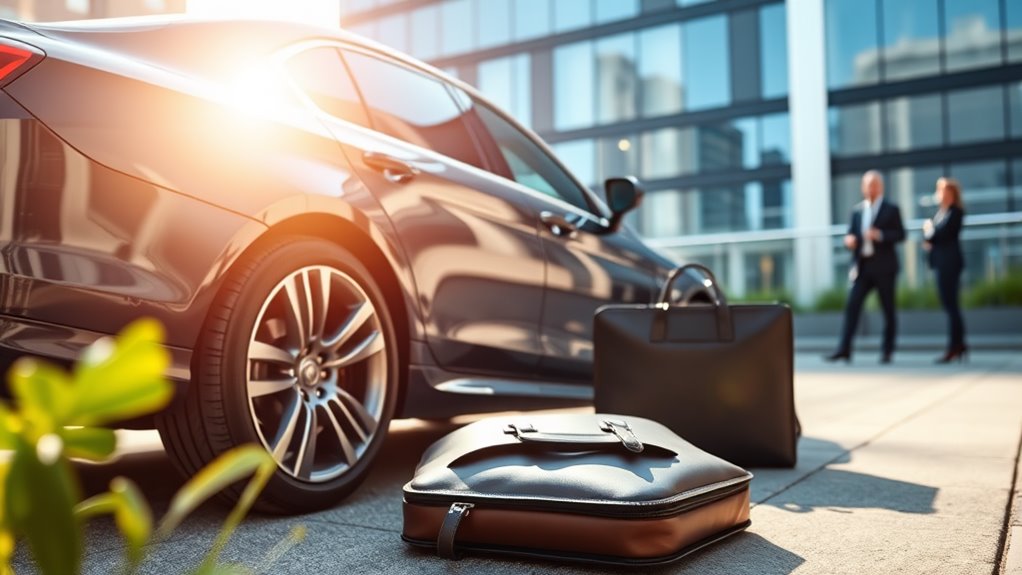As a freelancer, your vehicle is often vital for your work, whether you're meeting clients or transporting goods. However, relying solely on personal auto insurance can leave you exposed to significant risks. Understanding the right coverage options tailored to your business needs is imperative. What happens if you're in an accident while on a job? The implications could be serious. Let's explore the specific coverage you need to protect yourself and your business effectively.
As a freelancer, you mightn't realize that your personal auto insurance may not cover the extensive business use of your vehicle. When you rely on your car for work, whether it's meeting clients or transporting equipment, it's essential to understand what insurance you really need. Personal auto insurance typically focuses on personal use, and if you're using your vehicle for business purposes, you might need additional coverage to protect yourself from potential liabilities.
Business auto insurance is important if you primarily use your vehicle for work-related tasks or if it's owned by your freelance business. This type of coverage is specifically designed for the risks associated with business use, ensuring you're protected in case of accidents or damages while performing work duties. If your business involves transporting goods or clients, commercial insurance becomes even more critical. Using a personal policy for these activities can lead to serious financial consequences, especially if an accident occurs. Additionally, it's crucial to understand that non-owner car insurance can provide coverage if you frequently rent or borrow vehicles for business purposes.
You might consider adding commercial endorsements to your personal policy, depending on what your insurance provider allows. These endorsements can provide some level of coverage for business-related driving, but it's important to confirm the extent of coverage. If you drive for rideshare companies like Uber or Lyft, specialized rideshare policies are available. These policies cater to the unique risks faced by freelance drivers, offering protection during the time you're actively working.
It's also essential to evaluate how often you use your vehicle for business. If you frequently drive for work, informing your insurer about this change is necessary. They may recommend or require you to switch to a commercial policy. Additionally, if you have multiple drivers or vehicles associated with your business, you'll need a more thorough insurance solution to cover all potential risks. Having the right freelancer insurance can provide peace of mind and support your business growth, ensuring that you are adequately protected.
Insurance costs can be higher for policies covering business use due to increased risk. However, if you work from home or drive less frequently, you might qualify for discounts based on low mileage. It's wise to compare providers, as different insurers may offer varying rates and coverage options tailored to your specific freelance work. Shopping around can help you find the most cost-effective policy that meets your needs.
Ignoring the necessary insurance requirements can expose you to significant financial liabilities. Claims can be denied if you fail to disclose your vehicle's business use, leaving you vulnerable in the event of an accident. Additionally, certain contracts may stipulate specific insurance coverage, so always review your agreements carefully.
Conclusion
To summarize, freelancers must guarantee they have the right vehicle coverage to protect themselves from potential liabilities. For example, imagine a freelance photographer who uses their car for shoots. If they were in an accident while transporting equipment, a personal auto policy might not cover damages. By investing in a commercial auto policy, they safeguard their business and personal assets, allowing them to focus on their work with peace of mind. Choose wisely to protect your livelihood.


